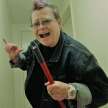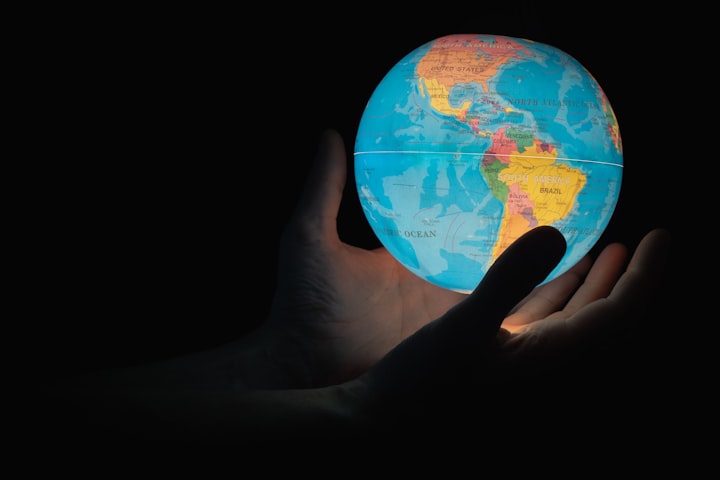Life as an EMT in a Small Town
How to help when help is needed the most

What is it like to work in a small town? I work in a small town in Vermont called Hinesburg. Working in a small town certainly has its perks, but it also has some drawbacks. You feel like a member of the community. The phrase, everybody knows their neighbor is not a myth. When you are invested in the community where you work you get to meet some great people. You hear all the town gossip, which most of the time is not completely true. Why am I telling you this? As an EMT when you know lots of people it is not always a good thing.
The tones go off and you feel the adrenalin course through your body. You know you have to be in your best form. It could be 6 in the evening or 3 in the morning. Time and tiredness cannot matter when someone's life is quite literally in your hands. Your brain goes into overdrive.
The first thing that happens is that you listen to the dispatch reason and already begin to formulate your thoughts on what you are going to find upon arrival at the scene. Dispatch gives an indication as best as they can as to what to expect so you can prep yourself for the given scenario. For example "Shelburne dispatch to Hinesburg Fire and Rescue pleas respond to the address of 123 Jones road for a 2 car MVA (motor vehicle accidents) unknown injuries." Hearing a dispatch such as the one above is always a bit frightening as I don't exactly know what I am going so when arrive on scene. The unknown injuries could be none or egregious. I have to hope for the best, either no injuries or minor injuries, but I must also plan for the worst.
Taking things in order of events the first order of business is to reply to dispatch acknowledging the tones and state that your crew is responding. The driver pulls the truck out of the station with lights and sirens and we are off and running. If I am not ready now with my game face on, if I am not ready now, I am already too late. We arrive and notify dispatch of our arrival. The scene looks bad. It is evident that the cars were traveling at a high rate of speed upon impact. It is a head on collision, the worst kind.
There is one person in a compact car and three people in a SUV. The occupants are still in both vehicles. There is glass everywhere. My partner approaches the SUV and I approach the compact car. I can't yet tell if the driver is responsive. I get to the drivers side and quickly realize that the driver is in serious need of help. The windshield has a star shaped break and it is evident the drivers head has made contact with the windshield. There is no evidence of the driver using a seatbelt. This magnifies the situation because without restraint from a seatbelt life threatening injuries are much more likely.
I try the driver's side door and it is jammed. All access routes have been damaged. I can't get to the patient. I notify my fire colleagues that I will need extraction measure to reach my patient. They do not hesitate. They get to work stabilizing the car and punch out the drivers window. They then cover the patient to protect them from flying glass or metal as they begin to cut off the top of the vehicle. The jaws of life are doing their job. As fast as they can they are able to free up the door to driver. I can now assess vitals. As I get closer to the patient I am better able to see through the blood that this is someone I know. My heart skips a beat. I know the patient is in bad shape and now my fear of worse case scenario are compounded. I know the patient and I have to do all I can to save them.
I do my job and do the best I can to separate my emotions from the task at hand. I know that if I get into emotional overload I will make mistakes that could cost my friend their life. If I could hand this patient off to another EMT I would but as of yet there are no extra hands. My partner has his hands full with the SUV. We have notified dispatch that we need mutual aid from surrounding towns. Help is on the way, but will it get here soon enough?
I am doing the best I can to stabilize my patient. I have worked with my buddies on the fire department and we have removed the patient from the car. This is the only way I could fully assess the injuries. Normally we would not move the patient until ready to put in the ambulance however, in this case the car was unstable and the patient had to be moved for both of our safety. I continue to work on the patient and have used all the tools in my toolbox. I want nothing more than to talk to my friend and reassure them that they are going to be okay. I can't do this because I don't know what the outcome is going to be, it is a promise I cannot make. Finally the mutual aid ambulance arrives. I give their team a report and help them load the patient. I have just turned over care. I don't know what the future is going to look like for my friend. I do know that the road to recovery, if there is one, is going to be long and painful. What I really want to do now is sit down and cry. I can't my job is not done.
I jump into high gear again and head over to the SUV. My partner is talking to all the passengers, who are now out of the car. These people were all wearing seatbelts and appear to have only minor injuries. I ask my partner if there anything I can do to help. He indicates that the injuries were nonlife threatening but they were going to transport one. There were two adults and one child. The child was going to be transported for evaluation and safety precautions. Once the patients had all been cared for and transported my partner and I help with traffic control so the firefighters can begin to clean up the scene. The tow trucks arrive and both vehicles are loaded. The scene is now under control. We report to dispatch that we will be clearing the scene and returning to the station.
It is not until I get back to the station that I can finally sit with my emotions. I am hurting for my friend. I talk to my partner to see if he knows what caused the accident. He filled me in. According to the driver of the SUV he was distracted because the child was screaming and looked back for just a moment. In that moment the SUV swerved into the other lane. There was not enough time to correct the course before impact. I am feeling myself grow angry. How could someone be so irresponsible to take their eyes off the road while driving? Who am I kidding, it happens for various reasons every day. Today just happened to be magnified because I had a friend involved. I want to scream but I can't. I am still on the job and who knows when the next call will come in. I finish my shift and the when the hour is reasonable I call my friends family.
I am informed that my friend is in critical condition and it will be a very long recovery. There was a brain bleed that the surgeons were able to control as well as a broken pelvis and several broken ribs. I asked if there was anything I could do to help. They assured my that all that could be done right now as pray. The family asked me who responded to the call the previous night. I told them I was the EMT who did the work to stabilize their family member but, I that I couldn't have done it without my team of firefighters who were able to free them from the car. There was immense thanks but also sorry for me. The family expressed their recognition of how difficult it must have been for me knowing the person I was treating. I told them I had to separate friendship from my job in order to give the best care possible. I will never know however if I was able to do that well enough.
I know I was able to help get my friend to the hospital alive. I know I did the best I could given the circumstances. Did I miss anything, I hope not. I will never know. All I do know is that my friend is alive thanks to my team and me. That is the best I can offer. I would like to say that calls like this are infrequent, however working in a small town you know most of the people in the town. Every call comes with the risk of knowing the patient. Certainly not all calls are as dramatic as the one I described but then again other calls are worse if you cannot stop death from entering the door. When I respond to someone you know there is one thing that is certain. I am not alone and my fellow firefighters and EMTs are right there with me. Knowing we can share each others pain and celebrations when we were successful and made a difference is what keeps me going. Without the support of the community none of us could these jobs in a small town.
About the Creator
Lyn Porter
I am a Physical Education teacher of 30+ years. I am also an EMT. These two jobs keep me busy. My hobbies include writing and painting rocks. I also enjoy getting out on the golf course as much as possible during the warmer months.






Comments
There are no comments for this story
Be the first to respond and start the conversation.